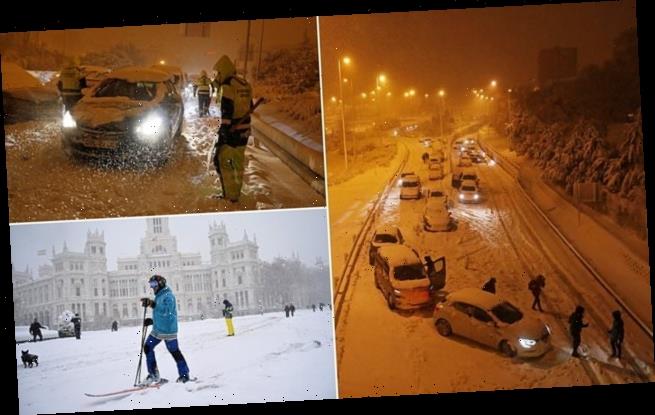Sometimes I hear about people hoping to reconnect with family members who were at best useless and at worst cruel or abusive in some way, and while I sympathise I just cannot relate.
Jack, which is not his real name, wasn’t cruel or abusive. He wasn’t addicted to anything, or criminally negligent. He didn’t join a cult or kill anyone (that I know of). His transgression was that he simply didn’t show up, and that was all it took for me to eventually lose all interest.
Now that I’m grown, reconnecting is absolutely possible. I’m Facebook friends with his sister. I know where to find him on LinkedIn. He periodically reaches out on special occasions, but while plenty of people would feel some kind of primal biological or sentimental urge to get to know the guy who fathered them, I feel nothing of the sort.
There are only so many times you can be disappointed in a person before the part of you that feels that way withers and dies. It’s part self-preservation and part-exasperation.
Research by Stand Alone, a charity that supports those estranged from family members, found that one in five UK families could be affected by estrangement, meaning that as many as 12million people are likely to be impacted.
What’s more, 8% of people surveyed said they were the ones who cut contact with a family member, which suggests that around 5million people in the UK have actively chosen estrangement, as I have and continue to. It’s not as uncommon as you might think.
In a way, I’m grateful I learned to let go at an early age. Some people waste years on undeserving people they feel morally or biologically obligated to.
This is why I want to share my story and say: you don’t need to. For many people, estrangement is the norm and should be treated as such.
Very occasionally, people try to convince me to give Jack another chance with old clichés like ‘but he’s your father’ (so what?) and ‘aren’t you curious?’ (not really), but rather than convince me, they just tire me until the subject is changed.
Forgiveness can be good and healthy, but it can also be poisonous and exhausting
‘Tired’ is probably what I’d choose if I had to try and distill the feeling behind this casual estrangement into one word.
When I was a small child, I was ecstatic to hear from him whenever he deigned to get in touch. An e-card here, two minutes on the phone there, but then nothing for great swathes of time.
This manner of estrangement is utterly pedestrian, even boring, but after years of breadcrumbing contact with me I got bored too. As far as I’m concerned that’s reason enough for me to call time on our ‘relationship’.
Maybe another part of it is that there’s no mystery to solve, no missing puzzle piece to hunt for that could help make my life make a bit more sense. It’s not like I was adopted or the identity of my father is some great secret to be uncovered – I know too well who he is and what his deal is, and I was left wanting.
Do I need therapy? Probably. Do I need him in my life? Absolutely not.
Even though I can happily say not many people have tried to make me feel like I should get back in touch with Jack, the subtle societal pressure is still very much there.
It’s there in heart-warming Oscar-bait movies about giving deadbeat parents second chances. It’s there in innocent old phrases like ‘blood is thicker than water’ or ‘family is everything’.
It’s even there in the tension in my jaw and hunched shoulders as I type this.
But it shouldn’t be.
So I say again for anyone who feels pressure to reconnect with someone who doesn’t deserve them – you simply do not have to.
Don’t let me dissuade you from getting in touch with someone if the lack of them is leaving you desperately sad or unfulfilled. I can’t be the one to dictate who you have in your life. No one can, that’s the point.
You get to decide who you want around and what you spend your emotional energy on. Sure, sometimes we need some help figuring that out, but if you’re letting guilt or societal pressure decide who you let back in, then you’re not taking care of yourself.
I could easily say something tired, individualistic and oversimplified right about now like ‘you don’t owe anyone anything’ or ‘you’ve got to look out for number one’.
Instead I’ll say forgiveness can be good and healthy, but it can also be poisonous and exhausting.
All you need to do is make sure you choose who’s in your life for the right reasons and that they’re your reasons, no one else’s.
For now I’m content in the knowledge that I value myself and my time enough to not waste it trying to forgive someone who doesn’t deserve it.
Source: Read Full Article



